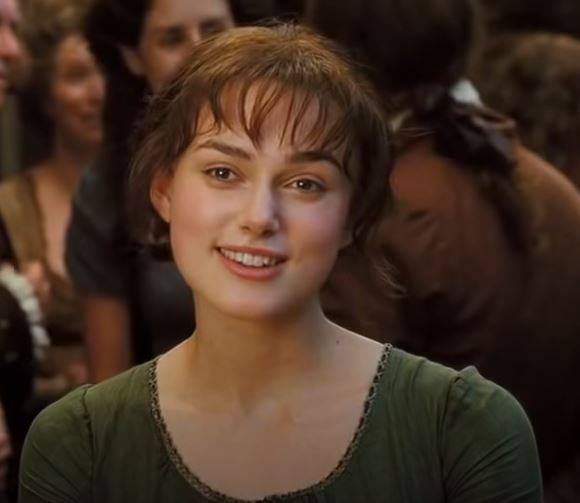
Photo Credit: Wikipedia
A girl beyond her time.
Jane Austen’s acclaimed novel Pride and Prejudice is one of the most recognisable names in English literature. For decades Elizabeth Bennet’s story lives on through different adaptations. The film produced by Joe Wright, captures the epic romance between Lizzie and the dreamy Mr. Darcy. Being a romantic at heart, I loved this movie. I’ve always adored a strong female protagonist who had grit and wit, who was unafraid to be herself. So, naturally I gravitated towards Lizzie’s character.
Set in 18th century rural England, the film followed the Bennet family as they weave their way through a society ruled by class. We’re taken back to a time where status and hierarchy were at the centre of all decisions. The relationship between Lizzie and her sisters was quick to highlight issues faced by girls during these early times. A consensus within the society conveyed marriage as a women’s primary goal in life. We see Mrs. Bennet’s desperate efforts to prepare her girls for the ‘right’ male suitors. Whilst the girls in the film had an implicit understanding that a successful marriage looked like. Which was one which denote economic stability, and social standing. But Lizzie in her strong-willed nature was not going to let society influence her choices.
When her distant cousin Mr. Collins sets his eyes on Lizzie, she was quick to refuse much to her mother’s dismay. She stayed firm in her decision despite the looming pressure of losing her family’s estate. The rejection came as a shock, as Lizzie began to break down cultural expectations. This rejection was the cathartic moment where Lizzie redefined what constituted a marriage. It was a statement that she wasn’t settling for any less—and I was all for the rebellion. Marriages in this time deduced a woman down to her beauty and appeal to the opposite sex. They weren’t valued by their intelligence, passions or capacity as a person.
Elizabeth Bennet’s character paves the way for women to seize control of their own futures. By ignoring gender specific expectations, she reminds us the importance of valuing our own worth. Elizabeth Bennet was someone ahead of her time. She fights against a concrete way of life, showing great courage and fortitude. The film taught me to live, and to love freely. This is such an important lesson for all girls, to understand that if we are not able to do so—something must change.
-Seav Lov
Junior Girl
Girl Museum Inc.
